Vitamin C
Vitamin C or ascorbic acid is involved in the formation of tissues (skin, skeleton, tendons, ligaments, etc.), enhances the absorption and storage of iron and stimulates the body’s defence mechanisms.
Until the cause was recognised, a deficiency in vitamin C used to cause scurvy with symptoms of fatigue, bleeding gums, bruising and painful joints and muscles – sometimes with fatal consequences. Although, scurvy no longer exists, low levels of vitamin C are observed in some individuals. Many studies have shown that vitamin C, thanks to its anti-oxidant and anti-infective properties, plays a role in the correct functioning of the immune defence system and in preventing cardiovascular diseases, certain cancers and ENT pathologies.
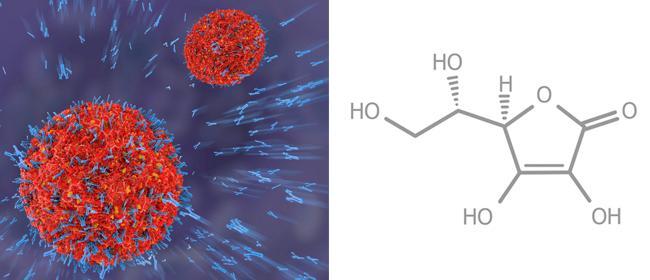
Vitamin B9
This vitamin plays a crucial role for pregnant women. Vitamin B9, also known as folic acid, is involved in closing the embryo’s neural tube. A deficiency can lead to malformation of the baby’s spinal cord in later life (spina bifida) which can cause severe disability or even premature death. The discovery of this malformation leads in most cases to a therapeutic termination.
Folate requirement increases during pregnancy because of growth of fetal and maternal tissue and the active transfer of folate to the fetus. The European Food Safety Authority (EFSA) considers that a 400 µg supplemental folate should be consumed daily for at least one month and up to three months after conception to contribute to the reduction of the risk of neural tube defects.*
For women at higher risk (with a past history of foetal malformation), this supplement is given at a higher dose (5 mg a day) via a medicinal product.
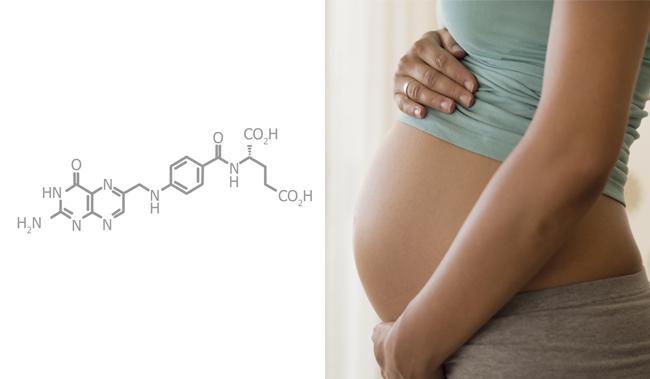
Vitamin B12
Vitamin B12 or cobalamin is involved in the synthesis of DNA and of fatty acids, the production of energy and the functioning of the nervous system. Some of the body’s vitamin B12 requirements are provided via dietary sources (particularly: meat, liver, fish, eggs and cheese) with the rest synthesised by the intestinal microbiota. A deficiency is expressed as tiredness followed by mood and memory disorders.
The individuals with the highest risk of being deficient are vegans, anyone with inflammatory bowel disease and older persons, since their ability to assimilate this vitamin is reduced.
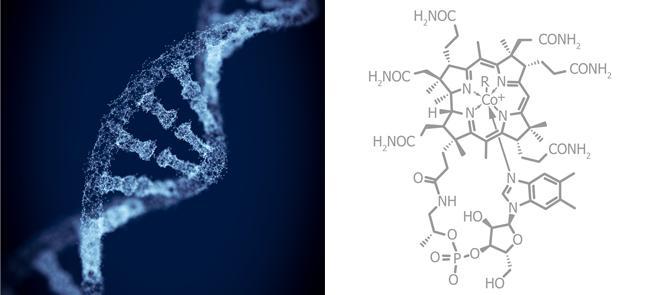
Vitamin D
To ensure that sufficient vitamin D is synthesised, the recommendation is to expose your forearms to the sun for a short period of time every day, e.g. by rolling up your sleeves: 15 to 20 minutes is sufficient.
The prevalence of low vitamin D status in Europe is 80 %.**
which may be the result of insufficient synthesis by the body (due to their age or, notably in winter months, due to the lack of exposure to sunshine), or it may be because their requirements are greater, which is the case for children and pregnant women, for example.
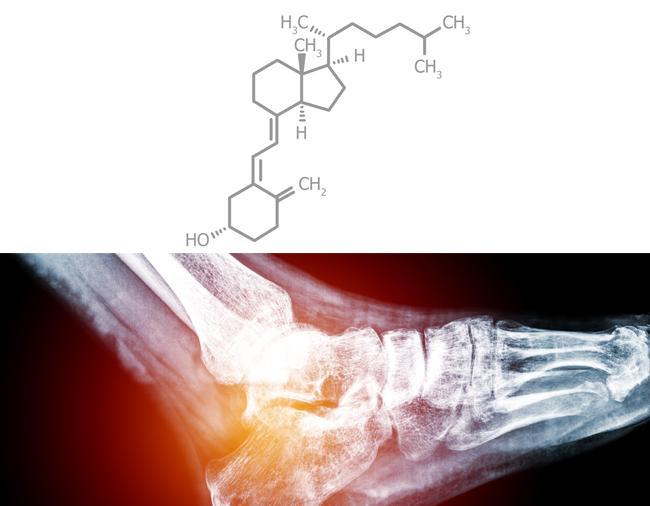
Iodine
Iodine is a trace-element which is essential for the formation of thyroid hormones. These hormones play a major role in brain development and in many of the body's metabolic functions. Iodine is present in enriched table salt, seafood, fish and seaweed.
In adults, an iodine deficiency can cause tiredness, hair loss, constipation, sensitivity to the cold, low morale, dry skin. In children, it can disrupt cognitive development and be the root cause of poor educational achievement.
The groups of people most likely to have a low or deficient level of iodine are pregnant women, (since iodine requirements are significantly greater during this time of their lives), vegans and anyone on a low-salt diet.
Iron
Iron is an important component of haemoglobin (which gives red blood cells their colour) whose role is to transport oxygen to the tissues. The first signs of a deficiency are tiredness, pale skin, breathlessness and greater susceptibility to infection.
The main sources of iron are foods derived from animals (meat, liver, oysters, etc.) and certain plants, particularly legumes. Iron from animal sources is, however, more easily assimilated by the body than iron from plant sources. Vitamin C facilitates the digestive absorption of iron when it is taken at the same time.
According to the WHO, iron deficiency is the most common deficiency worldwide.
The main causes of low levels or a deficiency in iron are chronic blood loss (heavy or prolonged periods, intestinal bleeding, haemorrhoids, etc.) and an insufficient intake, e.g. due to a diet which may be imbalanced, such as a vegetarian or vegan diet.
Chronic inflammatory conditions, obesity and pregnancy can also lead to iron deficiency due to the impaired absorption of the mineral in the intestines or due to the greater requirements.

Magnesium
Magnesium is involved in virtually every one of the body’s metabolic functions.
It plays roles in the transmission of nerve impulses, muscle relaxation, acid-alkaline and cardiovascular balance and the formation of tissues.
The first symptoms of a magnesium deficiency are anxiety, tiredness, muscle cramps and tremor, sleeping problems, erratic or racing heart rates.
Magnesium is present in dried pulses, wholegrain cereals and in nuts with a high oil content (walnuts, almonds, etc.) which are easily neglected by our modern diet.
According to the Suvimax study, 7 out of every 10 French people do not consume sufficient magnesium. Older persons, chronic alcoholics and anyone suffering from stress are particularly vulnerable to a magnesium deficiency, since these situations are linked to poor assimilation of this mineral.
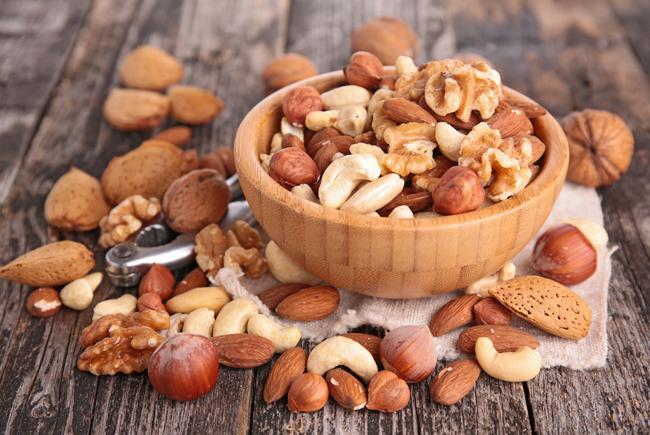
Sources :
- Bertrand Guérineau (2010) Les secrets de la micronutrition. Published by Albin Michel.
- Le guide des compléments alimentaires 2010. Published by Vidal.
- Etude nationale nutrition santé (ENNS), Bulletin épidémiologique hebdomadaire de l’Institut de veille sanitaire (InVS) n° 16-17, 24 avril 2012
- Etude SU.VI.MAX (Spplémentation en Vitamines et Minéraux Anti-oxydants), Dr S. Hercberg, 1994 -2003
- https://www.anses.fr/fr/content/les-vitamines-par-le-menu
- « Acide folique et grossesse », La Revue du Praticien, novembre 2016.
- *https://efsa.onlinelibrary.wiley.com/doi/epdf/10.2903/j.efsa.2013.3328
- **https://www.ncbi.nlm.nih.gov/pmc/articles/PMC5527850
